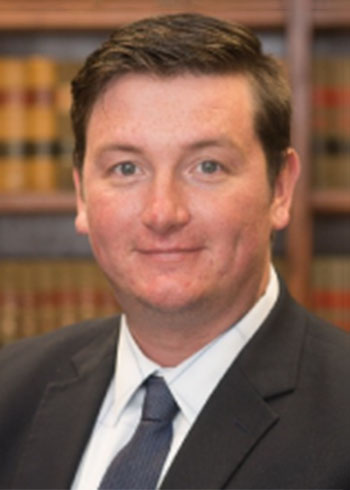
June 5, 2024 – Increased penalties for fleeing police and drug-related reckless homicide are changes to the state’s criminal code enacted during the Wisconsin legislature’s 2023-24 session.
In 2023 Wisconsin Act 226, the legislature amended Wis. Stat. section 346.17 to make fleeing an officer a Class H felony (it was previously a Class I felony).
The change boosted the maximum penalty for fleeing an officer from 3.5 years’ imprisonment to 6 years’ imprisonment.
“Fleeing and eluding has become a huge issue in our community,” said Alex Smathers, an assistant district attorney in Kenosha County.
“We have a lot of people fleeing and eluding down from Milwaukee trying to get to Chicago and vice versa, so we were happy to see the change.”
Smathers said that law enforcement has noticed an uptick in drivers fleeing the police since the onset of the pandemic.
Vehicle Impoundment

“Fleeing and eluding [police] has become a huge issue in our community,” said Alex Smathers, an assistant district attorney in Kenosha County.
“[We] were happy to see the change” making fleeing an officer a Class H felony.
Under 2023 Wisconsin Act 1, local governments may impound the vehicle of anyone who’s failed to pay the fine for a reckless driving conviction and is subsequently convicted of reckless driving.
“My concern is that poor people are going to be disproportionately affected by the bill,” said Lee Schuchart, a criminal defense attorney in Green Bay.
Under the new statute created by the act, a local government must return an impounded vehicle if the owner pays the reckless driving fine.
If the vehicle sits unclaimed for 90 days, a local government may dispose of the vehicle the same way it would an abandoned vehicle under section 342.20.
AI-generated Pornography
In 2023 Wisconsin Act 224, the legislature created a statute that makes it a crime to possess virtual child pornography.
Specifically, the statute makes it a crime to possess “obscene material that contains a depiction of a purported child engaging in sexually explicit conduct.”
The statute defines “Depiction of a purported child” as “a visual representation that appears to depict an actual child but may or may not depict an actual child.”
“Under the current statute, it has to be a real child,” Smathers said. “With the rise of AI and Photoshop, it’s sometimes very difficult to prove when it’s a real child or it’s a computer-generated image.”
“You used to be able to tell if it was fake or not, but now things are getting so technologically advanced that it’s getting harder and harder,” Smathers said.
Smathers prosecutes sexual assault cases exclusively. She said the new statute is a welcome arrow in her quiver.
But she pointed out that while section 948.12, the general child pornography statute, carries mandatory minimum penalty of three years' prison time, the new statute has no mandatory minimum.
Increase in Len Bias Penalties

“I think it just highlights that our criminal justice system is moving backwards as we try to address addiction, mass incarceration, rehabilitation – all the sentencing factors that we have to consider,” said Lee Schuchart, a criminal defense attorney in Green Bay.
In 2023 Wisconsin Act 29, the legislature increased the maximum penalty for drug-related first-degree reckless homicide under section 940.02(2) from 40 years’ imprisonment to 60 years’ imprisonment, by changing the crime from a Class C to a Class B felony.
Known as Wisconsin’s “Len Bias law,” section 940.02(2) aims to punish people who provide drugs to people who die after taking the drugs.
“I think it just highlights that our criminal justice system is moving backwards as we try to address addiction, mass incarceration, rehabilitation – all the sentencing factors that we have to consider,” Schuchart said of the new law.
“It’s rare that the people being sentenced in these cases are large dealers,” Schuchart said. “It’s typically low-level dealers or people who might know just enough people to share drugs but not in any way be considered a large supplier.”
Sexual Misconduct by School Employees
In 2023 Wisconsin Act 61, the legislature created a statute that makes it a crime for a school employee (including a bus driver) or volunteer to commit an “act of sexual misconduct” against a student.
The new statute (Wis. Stat. section 948.08) includes within “sexual misconduct” both “physical contact of a sexual nature” and “verbal contact of a sexual nature.”
Smathers said the bill was aimed at different types of “grooming” that sexual predators often use on children.
“It doesn’t have to be sexual assault,” Smathers said of the conduct criminalized by the act.
Before passage of the act, Smathers said, some grooming activities fell short of criminal behavior.
Smathers said the statute is drawn narrowly enough to not include legitimate classroom conduct.
“It has to be for the purposes of sexual gratification,” Smathers said. “It’s doesn’t apply to someone teaching the birds and the bees.”
Lifetime GPS Monitoring
A subset of convicted sex offenders will now be subject to lifetime GPS monitoring under 2023 Wisconsin Act 254.
 Jeff M. Brown, Willamette Univ. School of Law 1997, is a legal writer for the State Bar of Wisconsin, Madison. He can be reached by email or by phone at (608) 250-6126.
Jeff M. Brown, Willamette Univ. School of Law 1997, is a legal writer for the State Bar of Wisconsin, Madison. He can be reached by email or by phone at (608) 250-6126.
The act amends various subsections of section 301.45 to specify that multiple convictions in the same proceeding now trigger the lifetime GPS monitoring requirement.
Schuchart said the bill overrules State v. Rector, a 2023 Wisconsin Supreme Court case. In that case, the Supreme Court held section 301.45(5) only applied to multiple convictions in separate proceedings.
The bill applies retroactively to September 2, 2017. Schuchart said the bill may raise ex post facto concerns.
“For years, if someone was convicted of one sex offense, they were told a specific thing about have to register as a sex offender, even if there were two counts,” Schuchart said.
“As long as those counts were in a single complaint, the idea was it was one plea and sentencing; they would not be subject to lifetime GPS monitoring.”
